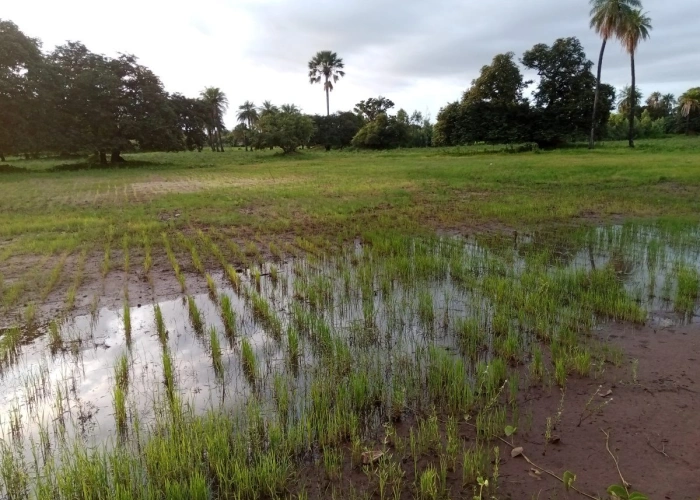Contribution to the Restoration of Land Affected by Salinization for Sustainable Agriculture

Adapted from the project website
Overview of the project
The locality of Djilor of the Fatick region (in central Senegal), is one of the communes most affected by this decline in agricultural production, where the main economic activities are agriculture, the processing of local products from this agriculture, fishing and, to some extent, livestock. The adverse effects of land salinization are increasingly felt, affecting the entire local economy, which is essentially dependent on agriculture.
Therefore, the restoration and safeguarding of the soil is a definite alternative for a sustainable and profitable agriculture, especially for this locality. In response to these challenges, the Association of Young Geologists and Environmentalists of Senegal (AJGES), in partnership with the youth and women’s organizations of the village of Djilor, is working to recover the soil affected by salinization, for the integrated management of water and soil and the fertilization of the land for sustainable agriculture as well as.
This community project of high humanitarian scope responds to the sustainable development goals 1 (eradicate poverty), 2 (zero hunger), 3 (good health and well-being) and 13 (fight against climate change) of the United Nations.
In Senegal, land salinization is mainly due to primary salinization with marine origins and, more particularly, to the last marine transgression (Sadio., 1991).
This situation later favored the creation of real lagoons inland, the deposition of marine sediments and the appearance of acid sulfate saline soils along some coasts and estuaries such as that of the Sine Saloum (chauvin, 2014).